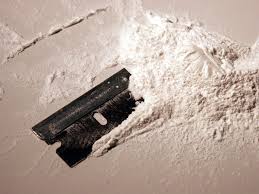Rehab Articles

Anabolic steroids are substances made by man that mimic or boost male sex hormones in the body. There are some diseases and medical conditions that require anabolic steroids for treatment, including delayed puberty, low testosterone levels, and some cases of muscle loss. Illegal anabolic steroid use is a big problem in many larger cities, and teens who engage in sports may use these drugs in order to gain muscle mass and improve their performance as an athlete. The risks involved when anabolic steroids are abused or used without a valid prescription are many, and there have been news stories in recent years about individuals who abuse anabolic steroids and who have turned violent.
There are many medical risks with anabolic steroids as well. High blood pressure is common, and the testicles may shrink because of the artificial male hormones received by the body. Liver disease can occur, and liver cancer is also more common in people who abuse anabolic steroids. Usually teen boys and men are the ones who take these types of drugs illegally but there have been cases of women abusing anabolic steroids as well. Women may develop a voice that becomes deeper and they may see excessive growth of facial and body hair as well. Acne is typical in both sexes when anabolic steroids are abused and aggressive behavior is very common as steroid abuse worsens. Addiction to anabolic steroids is a very real possibility, and the user may experience withdrawal symptoms that are extremely unpleasant. Treatment for steroid addiction is crucial if you have a problem with these drugs, and continued use of anabolic steroids could be fatal.
Rehab Articles

1. Increase your sponsor contacts. It is possible to prevent holiday relapse with the right support, and your sponsor is an important part of your support system.
2. Leave any events or situations where your recovery may be jeopardized. If you feel a relapse trigger coming on then you have every right to leave. Politely say goodbye and go, without feeling guilty or letting anyone pressure you into staying.
3. Try to view alcohol and drugs as a deadly poison. If you think of poison every time you see alcohol or drugs then you are more likely to prevent holiday relapse and stay on the road to recovery.
4. Attend support meetings more frequently, daily if needed. In order to prevent holiday relapse you need to stay strong, and support meetings can help you do this. Find out where these are held in your area and go as often as you need to.
5. Remember to eat healthy meals and snacks. Good nutrition can help prevent holiday relapse triggers and allow you to stay sober. During the holidays the rush makes many forget to eat properly, and this can cause you to relapse.
6. Get plenty of exercise. When you exercise you relieve pent up stress and this will help prevent holiday relapse. Exercise also releases endorphins in the brain and provides a feeling of well being and contentment naturally.
7. Don’t forget to get your beauty rest each night. Plenty of sleep can be the best tool to prevent holiday relapse and keep you on the right path to a permanent recovery.
8. Make sure that any holiday gatherings will have non alcoholic drinks offered.
Rehab Articles

1. Excessive energy is common with methamphetamine abuse or addiction. The individual using this drug may seem very active and energetic, and they may not be able to sit still. Pacing, fidgeting, and other activity is common when the user tries to sit calmly. The user may also appear nervous or edgy for the same reason.
2. Pupils become dilated and this is visible. When an individual with methamphetamine abuse or addiction uses the drug their pupils will dilate considerably. This dilation stays until the effects of the drug are over. Light or darkness will not change the size of the pupils very much and that is an indication that methamphetamine use is a problem.
3. Severe sweating is common with methamphetamine abuse or addiction. The user may be sweating heavily regardless of the weather conditions or temperature, because methamphetamine use causes the body temperature to rise and the body systems to speed up.
4. A loss of weight and appetite is expected when methamphetamine use occurs. When methamphetamine abuse or addiction occurs then the weight loss and lack of appetite may be very significant and very visible to others. In many cases the user may lose several pounds over the course of a few days or a week, and long term methamphetamine use is extremely dangerous because of the weight loss.
5. Insomnia or difficulty sleeping is a common problem with methamphetamine use. When the nervous system is accelerated then sleep may be impossible. Even after the individual with a methamphetamine abuse or addiction starts coming down from the drug they still have difficulty relaxing or sleeping soundly.
Rehab Articles

1. Admit that you have a problem and need to stop drinking. If you want permanent results than you have to engage in an honest analysis of whether you have an addiction to alcohol, and whether you want stop drinking or not. The desire to stop drinking will help your treatment effectiveness and the final results that you achieve.
2. See a physician. Your doctor or a substance abuse specialist can help you determine what your treatment options are and whether you may require a medically supervised detox program or not. A physician can be a terrific resource and can help guide you to the needed treatment so that you can start on the road to recovery.
3. Research the right alcohol abuse detox and treatment programs. There are many programs that promise to help you stop drinking permanently, but not all of them deliver on this promise. Do your research to evaluate what types of treatment each program offers, how much it costs, and all of the other details before you choose one to participate in.
4. Set up a support system. Once you start treatment to stop drinking you may need an extensive support system in place to help you deal with weak moments and intense cravings. These can lead to a relapse if you do not have support available when you need it.
5. Attend local 12 step meetings regularly. These meetings can hep you keep your resolve to stop drinking and keep you on the right track.



